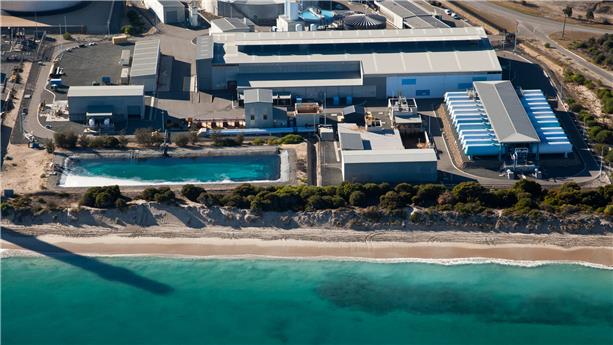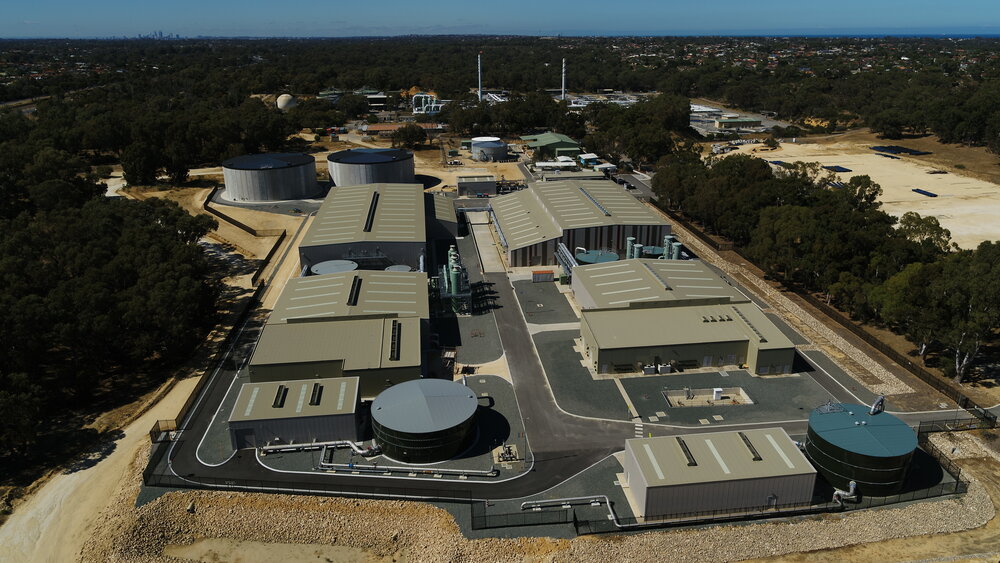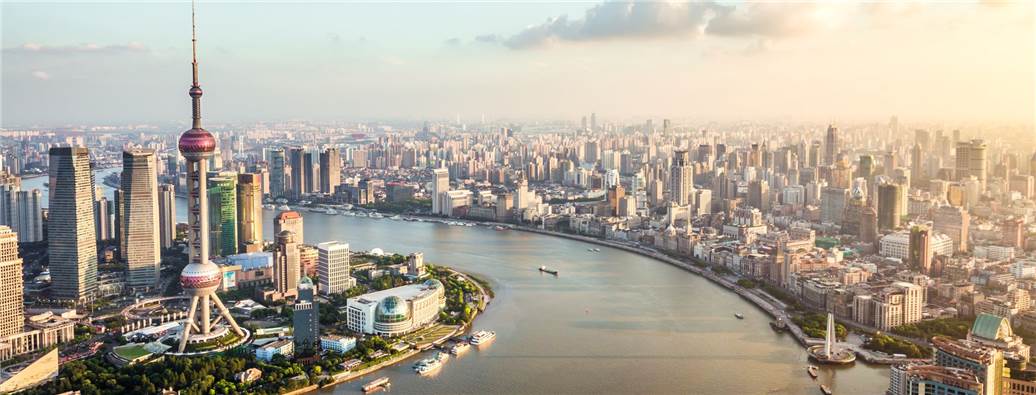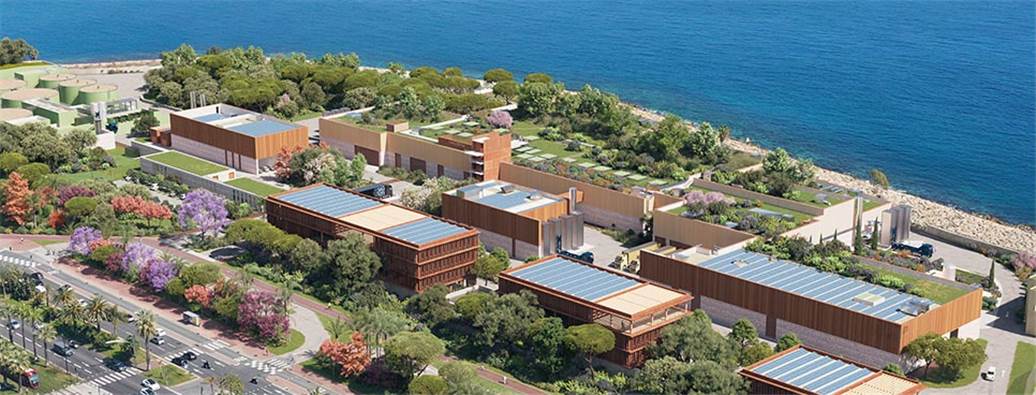
- A solution to be adapted according to the existing treatment and the intended use
- Robust and proven technologies to produce any quality of water
- The control of sanitary conditions for the protection of the health of users
Why reuse treated wastewater?
Reuse gives our wastewater a second life. We are switching from a linear use of a resource / use / purification / discharge into the natural environment to a circular use where purified water becomes a new resource for certain uses. This circular economy preserves the "natural" water resource by controlling the rate of exploitation of this resource.
Water recycling makes it possible to adapt the quality of the water to the intended use. Indeed, universal access to drinking water leads to the use of this water, selected for its quality, treated to be drinkable, for uses that do not require this drinking quality: agricultural irrigation, watering of green spaces, cleaning, etc. Water recycling makes it possible to set up alternative water networks of a quality adapted to uses less noble than drinking or personal hygiene, while of course respecting the health safety of operators and the public. Water recycling can even be used to produce drinking water depending on the local context.
Water recycling makes it possible to maintain economic activities during periods of water use restrictions. Many sectors of activity depend on the availability of water: industry, leisure (team sports fields, racecourses, golf courses, etc.) in particular. Water recycling provides them with an alternative non-conventional water resource to maintain their activities – with sobriety – even in critical periods with regard to water resources.
How to reuse treated wastewater?
For projects involving the reuse of treated wastewater, we have all the skills required to help you set up, develop, monitor, and operate these projects and facilities.
A project to recycle treated wastewater is not just a technical issue. It is at once a sociological issue (social acceptance of wastewater reuse), an administrative issue (project authorisation procedure), an environmental issue (impact study) and a technological issue (water treatment).
Our specialist entities are on hand to support you throughout the various stages in the development of a water recycling project.
What techniques are used to reuse treated wastewater?
Depending on the uses of the treated wastewater reused, the wastewater treatment will be more or less extensive.
The technologies frequently implemented are:
- Filtration: sand, disc or membrane filtration (ultrafiltration, reverse osmosis)
- Disinfection (chlorination, ultraviolet radiation, ozonation, etc.)
For certain uses, in particular those aimed at drinking water, complementary technologies are implemented:
- Activated carbon adsorption, ozonation or reverse osmosis filtration for the removal of micropollutants
- Nanofiltration, reverse osmosis, electrodialysis for the removal of salinity and certain minerals
We have the skills and references through the various projects we have carried out around the world to respond to all types of reuse projects.
They trust us
Beenyup (Australia) – Securing Perth's water supply: 'drinking' quality treated water before aquifer recharge

Frequently Asked Questions
- Agricultural irrigation (e.g. irrigation of the Gally farm from treated wastewater from the Carré de Réunion WWTP in Saint-Cyr l'Ecole / Versailles in France)
- Golf watering (e.g. Agde in France)
- Watering public gardens (example of Orléans, France)
- Urban uses such as road cleaning (example of Cannes, France)
- Groundwater recharge for indirect drinking water production or salt wedge control (example of Beenyup / Perth in Australia)
- Direct production of drinking water
- Industrial Use
In France, the objective is to develop 1,000 projects for the reuse of so-called "non-conventional" water throughout the country by 2027 and to multiply by ten the volume of treated wastewater reused for other uses by 2030.
In the United States, California is multiplying wastewater reuse projects and wants to reach about 1 billion m3/year in 2030 and 2.2 billion in 2040.
The two main types of wastewater are greywater and black water:
• Grey water: This water comes from showers, bathtubs, sinks, and washing machines. They are generally less polluted than black water and do not contain faeces. Grey water can be reused, after treatment, for non-potable uses such as garden irrigation or cleaning.
• Black water: This term refers to wastewater that contains fecal matter, mainly from toilets. Black water is more contaminated than grey water due to the presence of pathogens and nutrients. The treatment of black water is more complex and expensive, but it can also be treated and reused for appropriate applications under strict sanitary conditions
Regulations can vary greatly from location to location, but typically cover the following:
- Water quality: Wastewater must be treated at a level of quality appropriate for its intended use. For example, water for agricultural irrigation or watering green spaces may require less treatment than water for aquifer recharge or other uses in close contact with humans.
- Types of Permitted Uses: Some uses of reused water are more regulated than others. Irrigation, for example, is a common application for treated water, while use for direct human consumption is usually subject to much more stringent standards.
- Monitoring and reporting: Entities that treat and distribute reused wastewater are often required to follow strict monitoring protocols and report water quality to regulatory authorities on a regular basis.
In Europe, the European Directive 2020/741 establishes minimum requirements for the reuse of wastewater for agricultural irrigation and the watering of urban green spaces. This directive aims to encourage the reuse of water in the EU while protecting the environment and the health of citizens.
It is important to consult local regulations to understand the specific requirements and standards applicable to wastewater reuse in a given region.
Generally speaking, wastewater is discharged after treatment into the receiving environment, i.e. a river, a lake, the sea, etc.
This water can be used to maintain the flow of watercourses, particularly during low water periods, and therefore serves the good ecological status of water bodies by maintaining conditions favourable to biodiversity.
As part of a wastewater reuse project, the treated wastewater will be used for another application (agricultural irrigation, watering of green spaces, industrial use, cleaning, etc.), thus depriving the receiving environment of this water source. It is therefore important when considering a project for the reuse of treated wastewater to assess whether water recycling will not have a negative effect on water bodies and biodiversity.


